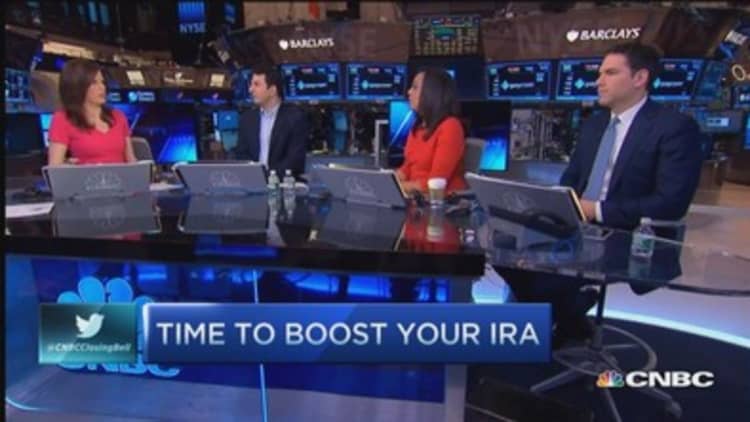Progress tends to come slowly in the world of retirement savings, but new, state-run plans to help small business employees put money away may prove to be the exception.
When Washington Gov. Jay Inslee on Monday signed into law a program the state will create to help employees of small businesses save for retirement, he became the second governor this year to do so, after Illinois' moved in January. Almost half of the other states are considering such a move, according to Sarah Gill, senior legislative representative at AARP.
"I have not seen a lot of movement like this on other issues," she said, noting that two or three years ago, only two states were contemplating plans like these. "Personally, I don't think much is going to stand in the way."

The new retirement savings assistance is coming at a time when policymakers are increasingly aware that Americans are disastrously short of retirement savings. The median balance in a 401(k) plan at the end of 2013 was $18,433, according to a study by the Employee Benefit Research Institute. Even worse, 36 percent of workers have less than $1,000 put away, the institute found.
Read MoreFor millions of Americans, the 401(k) is a failure
If retirement savings are a problem for employees overall, the savings shortfall is at crisis levels among employees of small businesses. Only 14 percent of employers with fewer than 100 employees even offer retirement plans, according to the Government Accountability Office, leaving many employees of small businesses with limited options, like IRAs that have an annual contribution cap well below that for 401(k)s. (Tweet this) (The contribution limit in 2015 for IRAs is $5,500, or $6,500 if you're 50 years or older. The contribution limit for 401(k)s and similar plans is $18,000, or $24,000 if you're 50 or older.)
Washington's new Small Business Retirement Marketplace will address this challenge by creating a sort of digital portal where employees of small businesses, defined as those with fewer than 100 employees, can find private sector retirement plans. Those include regular IRAs, Simple IRAs, or MyRAs, and they must meet certain standards such as offering target date funds and balanced funds, and charging low fees, Gill said. Employers have the option to match up to 3 percent of contributions, and the marketplace is expected to be available in 2017.
"We know people are very unlikely to save for retirement if they are not offered a plan through work. The Small Business Retirement Savings Marketplace will allow more workers access to a safe, easy and affordable way to retire in dignity," said Washington State Sen. Larry Springer in a statement announcing the signing of the legislation.
The new marketplace "lets employers compare apples to apples, and it is intended to be completely self-sustaining," Gill said. Employers, not the state, would provide any matches to employee contributions.
Illinois has taken a slightly different approach with a plan that will take effect in 2017. There, employers with at least 25 employees that do not offer other tax-advantaged retirement plans will automatically deduct money from employees' paychecks at a default rate of 3 percent of pay, unless the employees opt out, and then forward the money to an investment pool administered by a state board.
Read MoreCould these policy fixes help you save for retirement?
Numerous other states are moving toward the creation of state-managed retirement plans in various forms. California is conducting a market analysis that is required before the state retirement plan it passed can be implemented, according to the National Conference of State Legislatures. And Gill said New Jersey's Legislature is considering a bill with leadership support and bipartisan backing.
"There is no hearing yet, but it has got some serious mojo," she said.
The Washington plan, at least, also has support from members of the financial services industry. The Securities Industry Financial Markets Association has been working with the state on structuring its plan since roughly 2007, according to Marin Gibson, a managing director of the group.
Among the association's members, "there was widespread support for working on an alternative such as this," she said.
The new marketplaces will not completely offset the shortfall in Americans' overall retirement savings. "I don't think any plan alone would do it," Gibson said.
But at the least, these efforts should give employees of small businesses a better chance of saving enough to enjoy their golden years.



